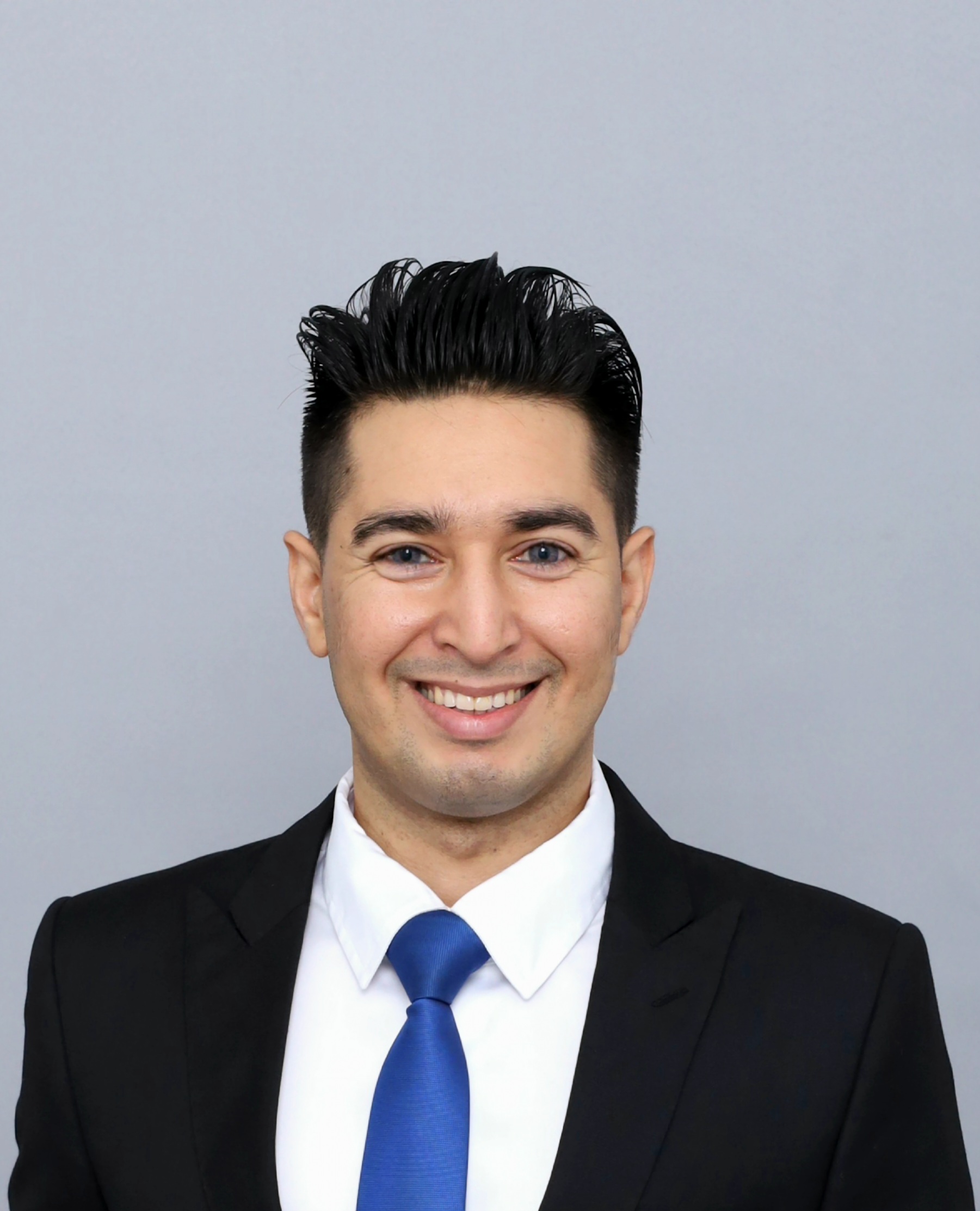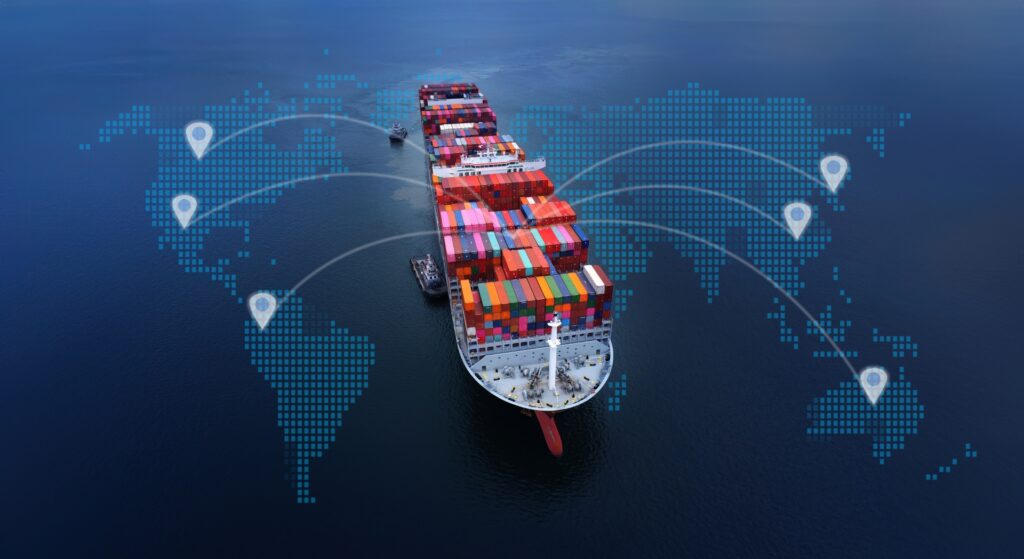In this alumni interview, we speak with Faisal Abdul Karim, Director at Standard Chartered Bank, to explore his journey through risk management, consulting, and banking. He shares how his early experiences in consulting shaped his approach in the financial sector and how he now leverages that knowledge to drive growth in transaction banking.
Faisal also discusses his passion for mentoring fintech startups, offering valuable lessons for entrepreneurs, and highlights the importance of continuous learning and adaptability in today’s rapidly evolving trade finance landscape.
Career journey so far
Hello Faisal! What is your current role and what does your average day look like?
I’m a Director at Standard Chartered Bank, where I support the Corporate and Investment Banking division, specifically within Transaction Banking. My role involves overseeing end-to-end transaction banking and product risk management for the bank.
I’m based in Singapore, supporting our global network businesses. My focus is on managing client focus and risk culture, enabling products, identifying efficiencies, and ultimately driving improvements in profitability through better returns on equity.
On a day-to-day basis, I’m mostly handling escalations and resolving issues that our clients may face, whether those relate to transactions, operational challenges, or conduct & control. My role is to ensure that our business, middle office and support functions work seamlessly together, while managing the risks associated with our transactions, to deliver a seamless client experience.
I like to describe my role as being a catalyst for the business, facilitating processes, empowering people, and ensuring we deliver effective banking solutions to our clients.
Can you share the trajectory of your career and how it led you to where you are today?
I’ve worked in business enablement and governance for over 18 years. My career journey is anything but linear.
My career began at a Big Four firm where I took on management consulting, rather than traditional auditing. The experiences at bulge bracket banks and asset managers, included capital risk management & deals advisory, which gave me a unique perspective on delivering valuable solutions for global financial services clientele.
Consulting was both challenging and rewarding. I gained valuable experience by winning mandates, pitching to clients, and delivering projects with limited resources – often while learning on the go.
I then worked at Barclays as the Business Risk partner for Barclays Corporate & Investment Bank (CIB) responsible for Asia franchise, aligned with COO to proactively business strategy, products & performance, governance and oversight.
At Standard Chartered, I have worked across the lines of defence to identify value additions and managed overall risks across customer journeys and various CIB products. I have also led projects to optimise both client and product life cycles, ensuring that we make banking more efficient for our clients, while staying within regulatory frameworks and our bank’s standards.
How do you think starting your career in consulting, and then moving into your current role, has influenced and benefitted your career trajectory?
In hindsight, it was the best decision I had made to join Consulting for my graduate apprenticeship, which was much more cutting edge and dynamic than the firm’s traditional services. It pushed me to be creative, innovative, and competitive, helping me accelerate as a financial services specialist and learn about the key products, profitability drivers, risks, and regulations.
This early experience gave me a major advantage. I gained hands-on insights into areas of financial services that auditors might miss, essentially giving me a practical MBA.
Consulting opened doors for me in the banking sector; I was seconded to Barclays, where I successfully delivered a major project and after leaving EY, I transitioned into investment banking and eventually to my current role at Standard Chartered.
Consulting gave me an outside-in perspective that banks value, along with the flexibility to rotate through different roles and tackle complex projects beyond my usual responsibilities. The innovative problem-solving mindset, which I developed in consulting, has been a key factor in my growth throughout the career.
What are some of the pivotal experiences you can share from previous roles that have helped develop or accelerate your career?
The first was when I moved to Singapore with Barclays. I was relatively young at the time, but after going through several rounds of interviews, I secured a role with key regional oversight responsibilities. This was a key opportunity which exposed me to experienced bankers and work with the regional board for driving tangible returns on equity.
The second was at Standard Chartered, where I volunteered for a project through our internal talent marketplace 2 years ago. I dedicated few hours a week to assist the Transaction Banking Sales team with client opportunity analyses, pitch decks and requests-for-proposals (RFPs). This allowed me to work on large deals with Fortune 100 clients, and helped deepen my understanding of their businesses and add value. Balancing this with my regular responsibilities was challenging but my intrinsic motivation and desire to learn kept me going.
Professional development
What prompted your interest in the Certified Trade Finance Professional (CTFP) qualification?
The CTFP is a highly specialised certification and given my role in transaction banking – where we support driving commerce and resetting the global economy – I felt that improving my technical knowledge was important to better serve my value chain. It helps you understand the intricacies of trade finance and stay ahead of innovations like digitisation and sustainable trade finance, which we’re spearheading for our client base.
The Transaction Banking division at Standard Chartered is one of the largest globally – we handle a significant share of the cash management wallets and movement of goods and services in terms of both value and volume. We’re also involved in various international development goals and sustainability initiatives, often as the only bank present in high-level forums alongside bodies like the World Bank and IMF. I wanted to ensure I continuously earn the credentials to contribute effectively.
The CTFP, being an ICC-recognised standard, provides a comprehensive understanding of the trade finance industry, much like knowing the rules of a sport you’re passionate about. It refreshed my knowledge and filled in critical gaps, especially in operational and structuring aspects of trade finance.
The curriculum is detailed enough to offer both a broad overview and the opportunity to dive deep into specific areas like commodity trade finance and innovations in the field, which aligns well with the work we lead at the bank.

Certified Trade Finance Professional (CTFP)
Could you share some insights into a project or two that you’ve worked on or are currently working on? How do you think these projects might influence future trends in the industry?
Innovation is part of our DNA. As a bank anchored in Asia, Africa, and the Middle East, we’re deeply connected to these developing corridors and link them to the capital in developed economies in Europe, the UK, and the US.
We’ve been investing significantly to grow our transaction banking and make trade and transaction services more seamless and efficient. One example is our Trade Express platform, which is fully digital and allows clients to issue a letter of credit, or an open account, or guarantees in near real-time, compared to the traditional paperwork. The entire process – from filling out forms to receiving the MT 700 series – is being digitised with the platform being rolled out across our markets. We are also ramping up our platforms to offer end-to-end supply chain finance solutions with fully embedded services, which allow corporates to onboard and manage their financing needs seamlessly.
Our network and correspondent banking proposition are one of the strongest, and it’s backed by our ability to manage risk for our clients, in a nimble and innovative way. We follow global processes, policies, and regulations, to ensure our client & markets grow amidst headwinds.
Innovation in trade finance
When innovating in such a regulated space, what sort of challenges do you encounter and how do you manage them?
As a bank, it’s our responsibility to not only uphold good regulatory conduct but also anticipate and lead with best practices.
We work closely with regulators globally and there’s a strong top-down focus on risk management and ensuring our conduct is exemplary and it’s ingrained in our DNA to do the right thing.
One of the challenges we face is getting things right the first time. This requires a collaborative effort to be consultative and ensure we’re taking risks in a controlled, client-focused manner while upholding our fiduciary obligations.
One of the things I admire most about our approach is the investment we make in ensuring there is compliance by design. This means that when we launch products, they undergo rigorous governance oversight to ensure we promote fair dealing and grow our services sustainably.
We’re also ensuring there are institutional grade standards applied to digital assets adoption, by offering regulated custody, trading and exchange services, for which we have built innovative tools to manage and monitor these horizon risks and navigate the regulatory landscape.
Advice for aspiring professionals
What essential skills do you believe are necessary for success in trade finance today?
I believe the number one skill is the ability to keep upskilling. The world is constantly changing, and with the rise of AI, it’s important to have a learning mindset. It will take you far, as it allows you to continuously adapt and grow.
Another skill is resilience. Being resilient makes you flexible in any situation, it helps you survive and thrive in challenging situations. It’s important to embrace challenges, knowing that even if you fail, you’ll come out of it with valuable lessons and a better perspective.
If I can add a Singapore-specific point: many people here are comfortable working and living in Singapore, but I encourage everyone to take the opportunity to work in different markets.
International experience gives you a deeper understanding of global competition and diverse cultures. Working with people from different backgrounds will also help your creativity and innovation. It shifts your thinking and pushes you to approach problems in ways you may have never considered before.
How has your experience in trade finance and the broader financial sector influenced your approach to mentoring fintech startups? What key lessons do you emphasise to entrepreneurs in this space?
I’ve been involved in mentoring and volunteering for quite a while, but my work with fintech startups really took off during COVID-19 when everything went virtual.
My connection with fintechs started around 2017-2018, when we began exploring how to onboard new payment methods and fintech clients. At that time, banks weren’t particularly friendly toward fintech startups and that made it challenging for these companies to work with banks.
Startups, unlike traditional corporate clients, often lack financial due diligence, have opaque shareholding structures, and sometimes operate in gray areas with unclear licenses. As a bank, we had to find a way to bank these clients effectively and safely. That experience led me to dive deeper into the fintech ecosystem to understand the key players and how to distinguish legitimate startups from those less reliable.
Over time, I got involved with incubators, VCs and private equity to mentor and guide their growth journey, helping them refine their product propositions and explore ways to raise capital and gather customer feedback.
It’s exciting to see how the banking industry has evolved and today many banks, have dedicated fintech segments, and they actively seek out fintech clients. It’s a growing and profitable ecosystem.
Any key lessons you’d emphasise to entrepreneurs in the fintech space?
One of the key lessons I always share is to think holistically, rather than just focusing on your value proposition.
Working in a bank has given me a lot of structure and I’ve been fortunate to work in different roles and product segments, which allows me to see the life cycle of our services. Many entrepreneurs may not fully understand the complete life cycle of their products or the various implications they need to consider to drive returns.
So, my advice to entrepreneurs is to always look at the end-to-end value proposition. Understand the full journey from your client’s perspective, and then prioritise your product development.
It’s also important to keep your product backlog well-stocked so you’re always refining your offerings.
What resources do you use to stay up to date with industry developments?
Well, staying up to date is a personal habit. If you looked at my phone, you’d see about half the content is related to innovation in banking, payments, and trade finance. I believe in always learning, even when I scroll through social media, I follow industry influencers on LinkedIn, listen to podcasts on Spotify, and read banking Journals to stay informed. It’s bite-sized infotainment, which keeps me engaged with the current industry trends. I’ve also been using ChatGPT and Gemini for insights and see if something is worth deep-diving to learn and grow.





